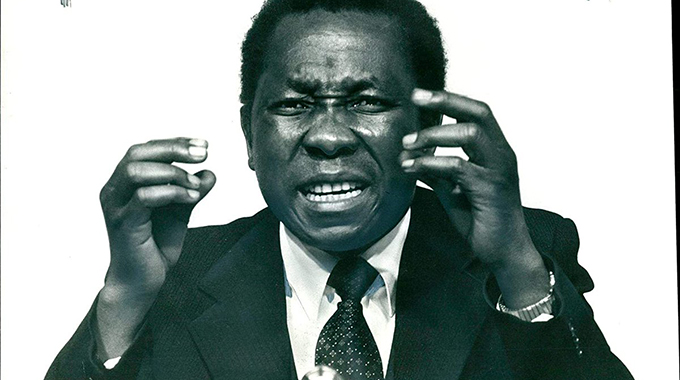Patriotic Front: We will grab land for nothing

The Herald, October 20, 1979
LONDON. – The Patriotic Front would seize land without paying compensation from State coffers if they won power, a PF spokesperson said yesterday.
“We intend to seize land and pay not a penny to anyone,” Mr Eddison Zvobgo told reporters.
He was commenting on the PF’s acceptance yesterday of the British and American offers to contribute to a land bank in a legally independent Zimbabwe if one emerged from current peace talks here.
Mr Zvobgo’s remarks came as further indications that, while the PF did not object to others compensating white farmers, it would not use Government funds. A British statement released here and in Salisbury yesterday, said the proposed fund would be used for “agricultural resettlement and development, including land purchases”.
Mr Dennis Norman, chairman of the Commercial Farmers’ Union said yesterday he hoped to meet officials from Britain next week to discuss the fund.
Our London Bureau reports that Mr Norman said members of the CFU believed that they would have to be a redistribution and a re-allocation of land.
“But this has got to be done on a co-ordinated and properly planned basis,” he said in a BBC Radio interview.
“The fear is, if one is to be believe the statements, we have been receiving 6 000 miles away, that the Patriotic Front’s view is that land belongs to the State and must revert to the State with no adequate compensation.
“That is the fear being expressed by our members.”
If Zimbabwe Rhodesian farmers’ land was compulsorily purchased by whatever new Government emerged, they would have to be satisfactorily compensated in some way. Mr Norman said they would be trying to find out what was meant by the term “under-utilised” land, what were the intentions of the proposed land fund. Iana reports that Britain’s Foreign Secretary Lord Carrington, said yesterday that he believed new elections should be held within two months of agreement at the Lancaster House conference.
There would be a serious danger of a ceasefire breaking down if the transition period was longer than two months, he said. Lord Carrington was opening the first full session of the conference at which arrangements for implementing the British Government’s independence constitution were discussed.
After the 30-minute meeting, the Zimbabwe Rhodesia delegation and the PF publicly opposed each other over who should control the country during an election campaign.
The Foreign Minister Mr David Mukome, said he wanted to correct “misleading reports” that had suggested his Government would be asked to stand down during a transition period.
“We have never discussed this,” he said. “If we were asked about it, we would reject it out of hand. Bishop Muzorewa will behave like any other Prime Minister whose country is going through an election process.”
Mr Zvobgo dismissed Mr Mukome’s comments.
“The regime must disappear as a pre-requisite to any transitional period,” he said.
LESSONS FOR TODAY
- Transitions can be very delicate. Wisdom, integrity and level-headedness are integral characteristics, if success is to be achieved.
- Land is a vital resource that should be shared equally. The land question was central to negotiations at Lancaster because the best land was in the hands of a few white people.
- With the roll out of the land reform programme, more and more black people have been empowered and are in control of the land.
- It was going to be folly for the British to expect the new black Government to pay compensation to its kith and kin who seized the same land from native Zimbabweans without paying anything.
- When negotiating, it is important to brief key stakeholders on progress to ensure a buy-in of the process. In this instance, it was key for the British to appraise African states on progress regarding the talks in order to get support from the Organisation of African Unity.








Comments